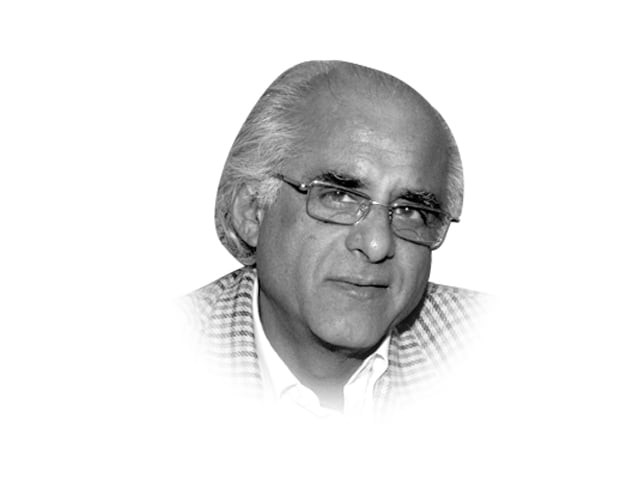Loving our tormentors
Pakistanis simply fail to see an enemy if he wears a long beard and skullcap (or turban) and speaks Arabic.

Looking back, however, we find that we have forever been famous for celebrating foreign tormentors. It has gone on so long that this disease is now a part of the collective psyche of the Muslims of the Indian subcontinent. Now, appreciation for post-Hijra outsiders (read Muslims) was kosher for us, whose ancestors converted (and damn the assertions about everyone having arrived from Arabia duly converted), but there is at least one aberration.
On the post-Hijra freebooters of the 10th century and onward at another time. But consider Alexander. He has been our great hero since all times. We celebrate him — especially his victory over Pauravan — name sons after him, even claim descent from him and, for the greater glory of religion, have also converted him to Islam. Never mind that the conversion is posthumous by two millenniums.
Back in 2001, I did a thirteen-part documentary on Alexander’s Indian campaign for Pakistan Television. Following the Macedonian from Bajaur (where he entered modern Pakistan) through Swat, Punjab and Sindh to Makran, I met with some bizarre viewpoints on the man. All of them were laudatory. In Taxila, we met the local ‘intellectual’, a beaver more than eager to show off his knowledge of Alexander’s exploits. Needless to say, it was all hogwash, part of the spurious ‘seena gazette’. As he was parting from us, he raised up his hands in orison and prayed for the success of our ‘religious undertaking’. I was taken aback. This was something entirely secular, so what, I asked, did he mean. “You are making a film on one of the greatest heroes of Islam and thus glorifying religion,” said the modern-day sage of Taxila. Upon learning that Sikander was not a Muslim, the man was dumbfounded. After a moment of reflection he blurted out, “Was he a Hindu?”
In his world of black and white, there was no gray of any other religion. Nevertheless, this newfound knowledge did not take away the man’s love and admiration for Alexander for having done in the Hindu kingdoms of the subcontinent.
Throughout the journey for the documentary, we only found admiration for Alexander alike among the educated and the illiterate. This had nothing to do with an understanding of his character and his military genius. It had everything to do with the most wacky sort of fiction invented by ignorant ‘intellectuals’ in small provincial towns.
Only some years earlier I had seen a four-hour documentary on Alexander by British historian Michael Wood. In Iran, Wood came across street performers in a number of towns who recounted tales of the Macedonians. The spiel was almost identical and it vilified Alexander and lionised Darius.
Now, a reading of history will show that Darius was a craven coward. From the first engagement with Alexander’s army on the Granicus River (now Biga Cayi, pronounced chaie) in Turkey to his final rout in Mesopotamia, the Persian king bolted the minute he set eyes on Alexander’s army. Indeed, Darius’ cowardice is vividly preserved in the famous Pompeii mosaic in the museum at Naples. It shows a very determined looking Alexander pursuing a terrified Darius, his eyes wide with fright.
However, as in Pakistan we have invented lies and lies to glorify the Macedonian as a great Islamic hero, the Persians have their own yarns about his cowardice and the unstinting courage and heroism of their own king. More times than Darius shamefully fled the battlefield, modern Persians make him face up to the invader and discomfit him. I wonder what the Persians would have made of a king truly as heroic and majestic as our Raja Paurava.
Historically speaking, this is the first instance of our love for our tormentor. I do not mean to say that this admiration for outsiders goes back to ancient times. Alexander gained our appreciation posthumously, at a time when conversion to Islam split us from our subcontinental family.
Published in The Express Tribune, June 6th, 2011.













COMMENTS
Comments are moderated and generally will be posted if they are on-topic and not abusive.
For more information, please see our Comments FAQ